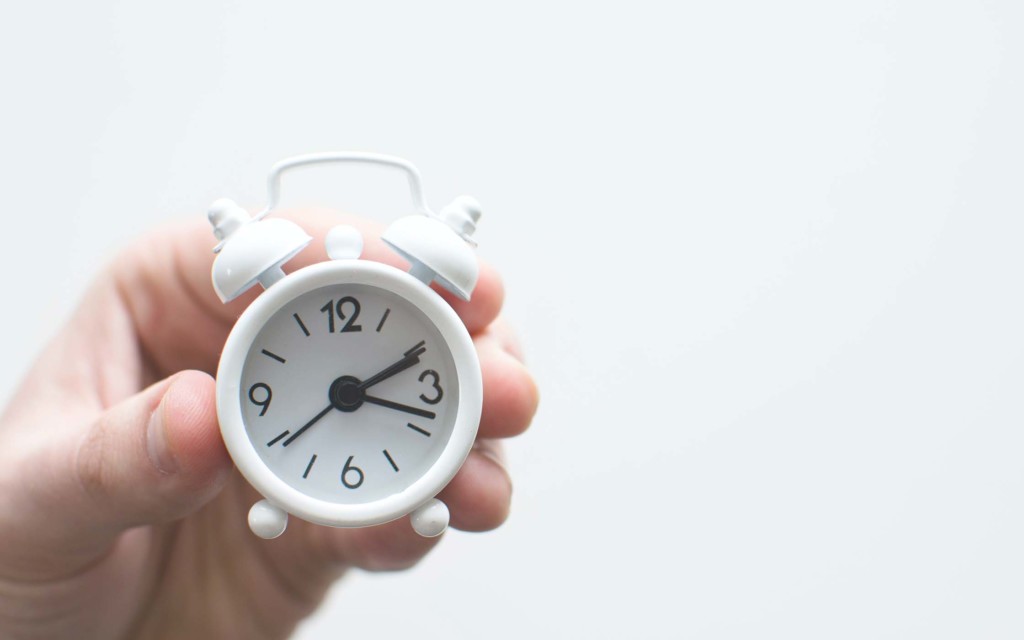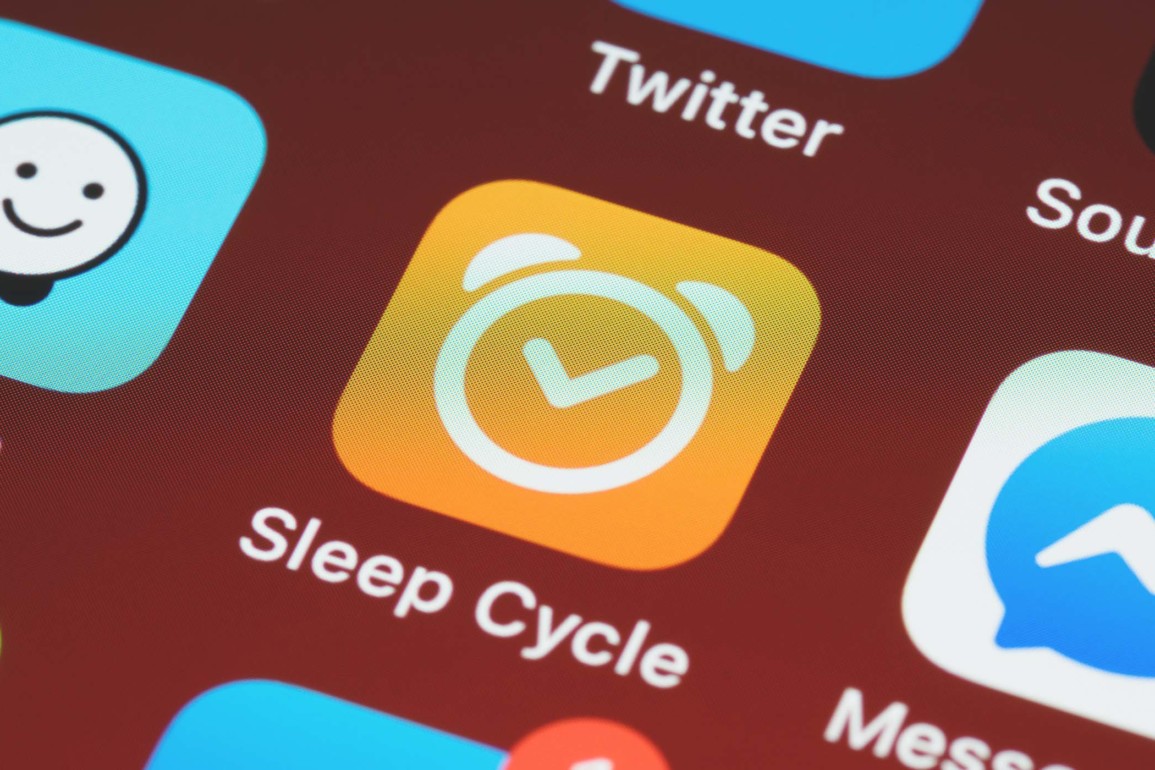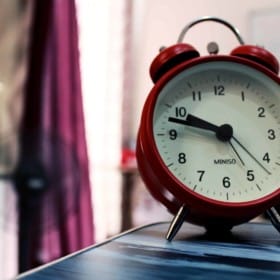Throughout time, human beings have constantly searched for ways to be more productive.
If you’ve ever uttered the phrase “there aren’t enough hours in the day,” then you’ll know exactly what we’re talking about here.
Our fast-paced lives, driven by things like family commitments, career expectations, and even social requirements, mean that we spend most days rushing from one task to the next.
It almost feels like a shame to waste so much essential time in bed each night.
Since people can’t just stop going to sleep each night, some groups have decided to look for other ways to get the right quantity of quality sleep, in a shorter space of time.
This means switching away from traditional sleeping schedules and exploring new (slightly unusual) alternatives.
In an age where productivity is key, switching to a polyphasic sleep pattern may just be the perfect way to squeeze more efficiency out of your days.
The question is, can an Everyman sleep cycle be beneficial to your life? Or will it just lead to one huge crash?
Let’s find out.

What is the Everyman sleep cycle? The basics
Most of us have a very similar idea of what a good sleep routine looks like.
We go to bed at the same time each evening (sans a few late-nights), get our recommended seven to nine hours of slumber, and wake up groggily when our alarms go off each morning.
That’s the definition of monophasic sleep — the kind of sleeping cycle that’s most common in the western world.
So, what is polyphasic sleep?
Polyphasic sleep asks the question of what would happen if you took that big chunk of sleep you got each night and sliced it up into a number of restful sessions spaced sporadically throughout each day.
Depending on the style of polyphasic sleep cycles you choose, you could still have a relatively lengthy chunk of sleep each evening lasting three or four hours.
Alternatively, you might decide to get rid of that downtime entirely and replace it with a handful of naps instead. There are people out there that have trained their minds and bodies to survive on just four 30-minute sessions of sleep each day.
The Everyman sleep cycle is just one kind of polyphasic sleeping pattern.
According to the people who practice this style of sleep, it’s helpful at resetting your circadian clock, and ensuring that you spend more time in rapid eye movement and slow-wave sleep.
That’s because when you’re in desperate need of sleep, your body automatically throws you into the stage of rest that you need most.
People who sleep according to polyphasic sleep patterns say that it helps them to be more productive and efficient. However, most experts agree that this probably isn’t a good way to sleep permanently.
There’s a reason that we’ve gotten so used to sleeping for an extended period of time each night — it works.
However, if you desperately need to get some extra hours into your schedule when preparing for a big test, then perhaps the Everyman sleep cycle could be just the thing.

Where did the Everyman sleep cycle come from?
The Everyman sleep cycle wasn’t the first iteration of a polyphasic sleep schedule that people tried.
In fact, one of the most famous types of polyphasic pattern is the Uberman, named by Marie Stayer in 1999. Marie encouraged people to sleep in short 20-minute naps take once every four hours.
That means you get a total of 2 hours of sleep in a 24-hour period. Ouch.
Marie suggested that it would take the average person about a week to adjust to the schedule. The reality was far different. The Uberman schedule made people feel atrocious.
The people experimenting with the regime crashed and suffered from severe signs of sleep deprivation.
The result? Experts started to suggest an alternative: The Everyman.
The Everyman sleep cycle has 4 different variations, each with different combinations of naps and core sleeping patterns. The idea was to make the concept of polyphasic sleep cycles more accessible to the masses.
This is what the four different types of Everyman sleep look like:

Everyman 1:
The Everyman 1 sleep cycle, or E1, gives you a total of six hours and 20 minutes of sleep each day. That’s pretty close to what some of us get already.
You spend six hours sleeping on an evening, just like you would normally, and embed a 20-minute nap into your routine somewhere in the middle of the day.
The great thing about this pattern, is that you only need to find a spare twenty minutes in your day to fit your nap in. That means it’s less likely to mess up your social life.
Everyman 2:
The second Everyman sleep cycle, E2, is an adaptation of the original.
It’s designed to give you even more hours in your day, with a core sleeping period of four and a half hours, followed by two twenty-minute naps throughout the day. You get a total sleeping period of around five hours and ten minutes.
This sleeping strategy is designed to help you top up on REM sleep and improve your snooze quality. Although it’s tough to adapt to at first, it’s still a lot easier than adjusting to the Uberman schedule.
This option is probably best suited to someone with a part-time job, or a freelance worker that can break their schedule up through the day.
Everyman 3:
The E3 Polyphasic sleep cycles are even more difficult than E2.
Once again, you get a core sleeping period in this routine — but it only lasts for three hours. You also get three 20-minute naps during the day.
In total, your sleep pattern will add up to around four hours of sleep.
Many people consider E3 to be one of the toughest Everyman sleep cycles to attempt, which is why it’s common to create variations of this option.
For instance, you might decide to ramp your core sleeping period up to three and a half hours instead.

Everyman 4:
Finally, the E4 routine is the toughest in the Everyman collection.
You only get a single core sleep that lasts one and a half hours, and four naps lasting only 20 minutes each.
That means that your full time asleep in a 24 hour period will only be two hours and 50 minutes.
Clearly, this is a tough schedule to get used to. However, it’s something that some people prefer to stick to when given the Uberman strategy as an alternative.

What are the benefits of these polyphasic sleep cycles?
So, is the everyman sleep cycle worth a go?
Well, that depends on you. Before you tackle the idea of totally changing your sleep pattern, you’ll need to weigh the disadvantages and advantages of adapting to a new routine.
On the one hand, proponents of the Everyman sleep cycle say that it delivers advantages like:
- More time spent awake, which theoretically should lead to greater productivity.
- New opportunities to take part in personal activities and hobbies.
- The opportunity to improve sleep quality because of sleep deprivation.
- A chance to adapt to different working schedules.
- The possibility to reset adenosine levels several times per day. Adenosine is the chemical in your cells known for energy transfer and painkilling. When you nap through the day, you can reset the levels of adenosine in your body.
- An increased chance of having lucid dreams due to REM sleep fragmentation.
If none of those plus points seem like enough of a reason to slice your sleeping schedule into chunks, then it’s probably best to avoid the polyphasic sleep pattern.
Additionally, it’s also worth noting that changing your sleep routine in this way isn’t always a good idea.
What are the downsides of polyphasic sleep cycles?
There are people who will automatically have more adverse responses to the Everyman sleep cycle than others — such as those with mental or mood disorders.
Your body and mind can both struggle with getting used to a reduced amount of sleep. This can make certain ailments more significant and increase your chances of severe stress.
At least initially, switching to polyphasic sleep cycles will also give you many of the symptoms of sleep deprivation.
That includes an imbalance in your hormones which makes you more susceptible to problems with appetite, mood, and development.
What’s more, there’s a chance that you’ll become addicted to caffeine to help you manage your schedule, and that your relationships will suffer. If you’re constantly having to duck out of social situations to take your nap, it’s hard to maintain friendships.

Should you try the everyman polyphasic sleep pattern?
Some people swear by polyphasic sleep cycles. They believe that segmenting their sleep schedule turns them into more productive people — particularly during crucial moments when they need to get more hours out of each day.
However, most doctors really wouldn’t recommend using a polyphasic sleep pattern — at least not long-term.
Though many people can feel well-rested and healthy without getting 7 or 8 hours of sleep a night, few people can survive on a consistent lack of high-quality rest.
Our advice? If you do decide to give polyphasic sleep a try, the Everyman routine is probably the best option to try.
However, biphasic sleep could be a much better option if you’re just looking for a new way to shake up your sleeping schedule.
Additionally, make sure that you always speak to a doctor before you make any drastic changes to your sleep.
The rest you get each night plays an important part in your health. If you’re putting yourself at risk of sleep deprivation, then your doctor needs to know about it.
Siestio. Sleep Matters.
Medical disclaimer
You must not rely on the information provided on our website as an alternative to medical advice from your doctor or other healthcare professionals. For more information read our full disclaimer here.







